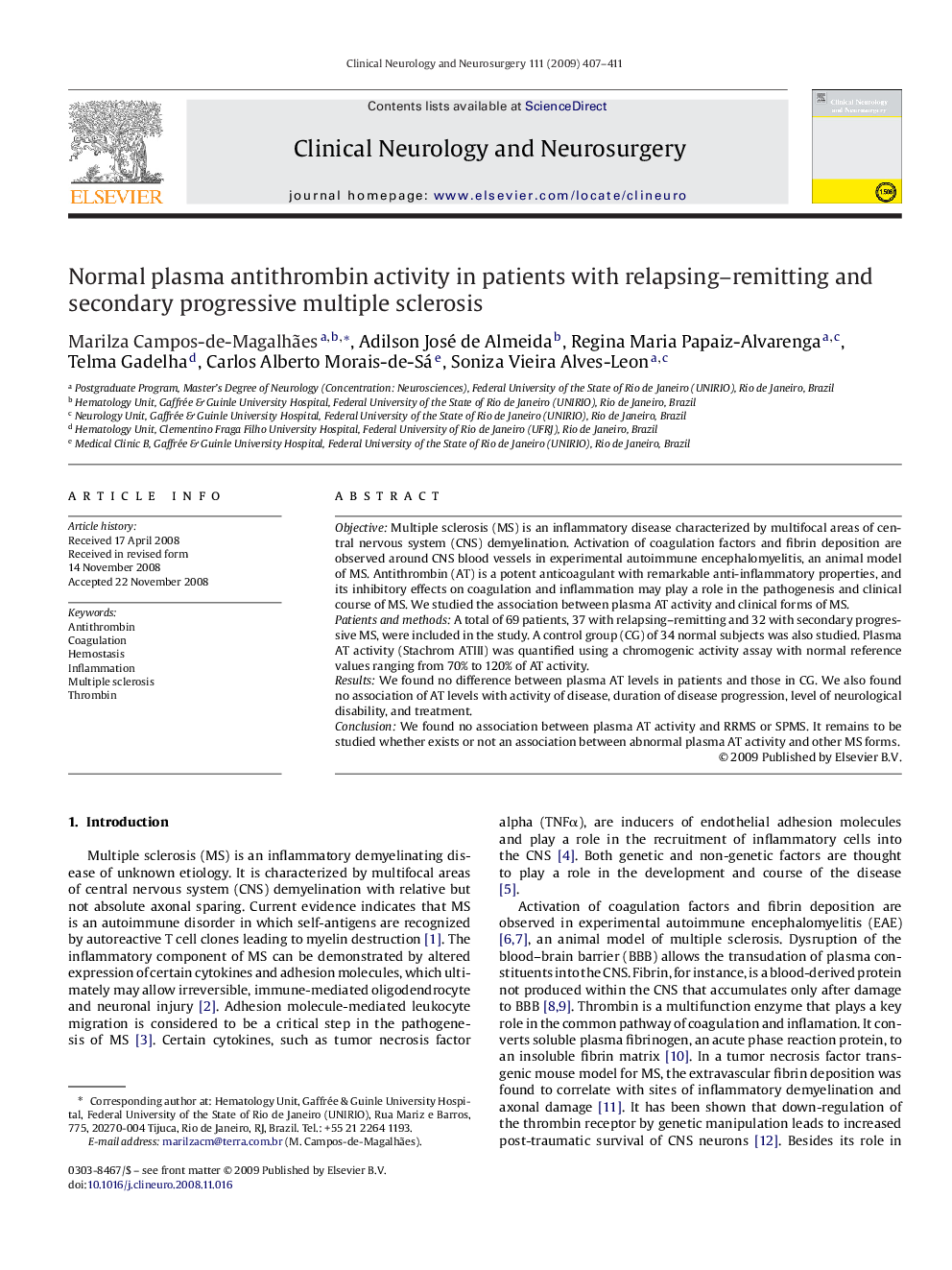| کد مقاله | کد نشریه | سال انتشار | مقاله انگلیسی | نسخه تمام متن |
|---|---|---|---|---|
| 3041651 | 1184785 | 2009 | 5 صفحه PDF | دانلود رایگان |

ObjectiveMultiple sclerosis (MS) is an inflammatory disease characterized by multifocal areas of central nervous system (CNS) demyelination. Activation of coagulation factors and fibrin deposition are observed around CNS blood vessels in experimental autoimmune encephalomyelitis, an animal model of MS. Antithrombin (AT) is a potent anticoagulant with remarkable anti-inflammatory properties, and its inhibitory effects on coagulation and inflammation may play a role in the pathogenesis and clinical course of MS. We studied the association between plasma AT activity and clinical forms of MS.Patients and methodsA total of 69 patients, 37 with relapsing–remitting and 32 with secondary progressive MS, were included in the study. A control group (CG) of 34 normal subjects was also studied. Plasma AT activity (Stachrom ATIII) was quantified using a chromogenic activity assay with normal reference values ranging from 70% to 120% of AT activity.ResultsWe found no difference between plasma AT levels in patients and those in CG. We also found no association of AT levels with activity of disease, duration of disease progression, level of neurological disability, and treatment.ConclusionWe found no association between plasma AT activity and RRMS or SPMS. It remains to be studied whether exists or not an association between abnormal plasma AT activity and other MS forms.
Journal: Clinical Neurology and Neurosurgery - Volume 111, Issue 5, June 2009, Pages 407–411